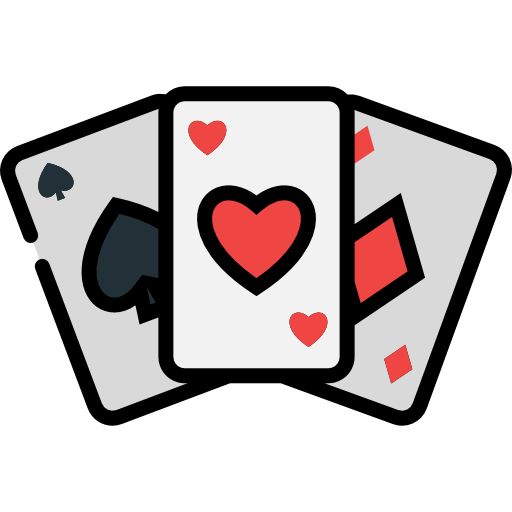IA-05. Class 20. Unit 2C
![]()
Please, remember to keep your camera on during the whole class
Make sure that your face is visible to facilitate communication with your classmates and teacher
(Student manual, articles 3 and 4): https://drive.google.com/file/d/1hL3_u2L7BEiiOC3dr82P3XYFFqY3hA8h/view
🍃🍂🍁🌾🌿☘🍀🍃🍂🍁🌾🌿☘🍀🍃🍂🍁🌾🌿☘🍀🍃🍂🍁🌾🌿☘🍀🍃🍂🍁🌾🌿☘🍀🍃🍂🍁🌾🌿☘🍀
Class objective:
Students will be able to review the rules of modals of uncertainty by means of grammar exercises and spoken activities in order to talk about personal characteristics.
🍃🍂🍁🌾🌿☘🍀🍃🍂🍁🌾🌿☘🍀🍃🍂🍁🌾🌿☘🍀🍃🍂🍁🌾🌿☘🍀🍃🍂🍁🌾🌿☘🍀🍃🍂🍁🌾🌿☘🍀

Agenda for today:
- Warm up
- Finish Unit 2C
- Complete the reading part of Unit 2D
- Start Unit 3A (vocabulary)
- Exit ticket
...................................................................

- Open and download the document: Billie Eilish – Everything I wanted (Lyrics).docx
- Listen to the song 🎧🎵
- Complete the missing verbs in the lyrics✍️
- Check together with the next game: https://wordwall.net/resource/93524770
...................................................................
🍃🍂🍁🌾🌿☘🍀🍃🍂🍁🌾🌿☘🍀🍃🍂🍁🌾🌿☘🍀🍃🍂🍁🌾🌿☘🍀🍃🍂🍁🌾🌿☘🍀🍃🍂🍁🌾🌿☘🍀

2C: Talk about personal characteristics

Video #1: May vs Might
https://youtube.com/shorts/5HYo2QvpbPc?si=GpzYNtAGI-wJ52fW
************************************************************************

Read #1
- Go to page 23 📖
- Read the text in Grammar: Using Could, May, and Might
- Go to page 60 📖
- Read the text in Lesson C: Using Could, May, and Might
************************************************************************

Grammar theory #1
Modals of certainty:
| Positive sentences | Negative sentences |
|
Might: The level of certainty is VERY low. ⬇️ Example: The store might be closed. (uncertain) |
Might: You can use it in negative sentences. ☑️ The level of certainty is VERY low. ⬇️ Example: The supermarket might not be open yet. (uncertain) |
|
May: The level of certainty is medium. The situation could happen, but it is not 100 % sure. 🤷🏻♀️ Example: They may come to the party. (possibility) |
May: You can use it in negative sentences. ☑️ The situation could happen, but it is not 100 % sure.🤷🏻♀️ Example: They may not finish work before 6 pm. (possibility) |
|
Could: This is very similar to "may". The only difference is that "could" sounds less polite than "may. "
Example: She could be at home. (possibility) |
Could: Do NOT use it in this context. ❌
Example: When I was a child, I couldn't have a job. (This is NOT related to the topic) |

************************************************************************

************************************************************************

************************************************************************
![]()
Book: Grammar #1
- Go to page 23 📖
- Complete exercise D
- Check together
************************************************************************
![]()
Book: Grammar #2
- Go to page 60 (Lesson C) 📖
- Complete exercise A
- Check together
************************************************************************

Game #2: https://wordwall.net/resource/93526539
- Get in groups 👩💻👨💻👩💻👨💻
- Share your screen

- Play the game 🎮
- Check together
************************************************************************

Maze Game: https://wordwall.net/resource/93532929
- Play the game 🎮
- Go to the correct word to complete the sentences
- Run away from the green monsters
- Check together
************************************************************************

Modals of certainty (may/ could/ might): https://www.baamboozle.com/game/2484719
- Get in Team 1 or Team 2
- Answer the question correctly to earn points for your team
- If you don't know the answer, you can ask for help from your team
- You have 1 minute to answer
************************************************************************
![]()
Write #1: Oral test practice
- Get in groups (A or B)
- Turn the sentences into questions
- Remember to use "you" instead of he/she and "your" instead of "his/ her"
- Get ready to have a 5 minute conversation
************************************************************************
|
Student A: You are Student B’s friend talking about his/her roommate’s behavior. Ask questions and discuss these ideas:
|
Student B: You are Student A’s friend talking about your roommate’s behavior. Ask questions and discuss these ideas:
|
************************************************************************
![]()
Speaking #1
- Get in groups with a student from the other group (A or B)
- Use the questions from the previous activity to role-play a conversation with them
- Use the timer bellow to make sure that your conversation lasts 5 minutes
- Remember to greet your partner at the beginning and to close the conversation at the end (say "good bye" or "Sorry, I have to leave." or "It was a pleasure talking with you"
************************************************************************
************************************************************************

Read #1
- Go to page 25 📖
- Read the text in "How memories are made"
- Go to page 24 📖
- Complete exercise C
************************************************************************
![]()
Speaking #2: https://wordwall.net/resource/76382833
- Get in groups 👩💻👨💻👩💻👨💻
- Share the screen

- Pick the cards

- Ask and answer the questions

Remember to take notes about the conversation!
************************************************************************
🍃🍂🍁🌾🌿☘🍀🍃🍂🍁🌾🌿☘🍀🍃🍂🍁🌾🌿☘🍀🍃🍂🍁🌾🌿☘🍀🍃🍂🍁🌾🌿☘🍀🍃🍂🍁🌾🌿☘🍀
![]()
Exit ticket:
What are the most common sources of pollution around the place where you live?
Write your answer in the Zoom chat or tell the teacher your answer
🍃🍂🍁🌾🌿☘🍀🍃🍂🍁🌾🌿☘🍀🍃🍂🍁🌾🌿☘🍀🍃🍂🍁🌾🌿☘🍀🍃🍂🍁🌾🌿☘🍀🍃🍂🍁🌾🌿☘🍀
Comments
Post a Comment